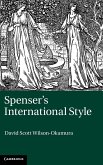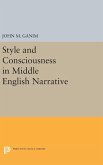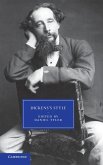Why did Spenser write his epic, The Faerie Queene, in stanzas instead of a classical meter or blank verse? Why did he affect the vocabulary of medieval poets such as Chaucer? Is there, as centuries of readers have noticed, something lyrical about Spenser's epic style, and if so, why? In this accessible and wide-ranging study, David Scott Wilson-Okamura reframes these questions in a larger, European context. The first full-length treatment of Spenser's poetic style in more than four decades, it shows that Spenser was English without being insular. In his experiments with style, Spenser faced many of the same problems, and found some of the same solutions, as poets writing in other languages. Drawing on classical rhetoric and using concepts that were developed by literary critics during the Renaissance, this is an account of long-term, international trends in style, illustrated with examples from Petrarch, Du Bellay, Ariosto and Tasso.
Bitte wählen Sie Ihr Anliegen aus.
Rechnungen
Retourenschein anfordern
Bestellstatus
Storno









